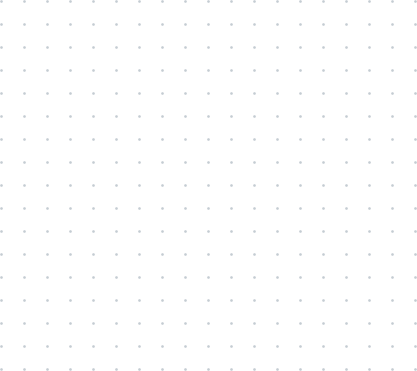

Private 1-1 In-Person Tutoring
Calculus (in French) Tutors Near Me
Less than 1% of all applicants become tutors for Calculus (in French) students for our company. We have a nationwide roster of Calculus (in French) experts, seasoned educators, and curriculum specialists eager to help. Reach out and we’ll connect you with a top-tier tutor!
CALL US NOW: 888-819-4833
Calculus (in French) tutors near me have graduated from






Let us help
Connect you with a Tutor
Un excellent guide pour apprendre le Calcul
Michael Garcia
La meilleure façon d'apprendre le Calcul en Français
Mia Shah
Un livre indispensable pour les étudiants en mathématiques
Mia Smith
Une approche efficace pour apprendre le Calcul en français
Samuel Chen
What people say about our local Calculus (in French) tutors
Darian
Studied: Calculus (in French)
Louis
Studied: Calculus (in French)
The benefits of Calculus (in French) tutoring near me
Calculus (in French) is a branch of mathematics that deals with the study of change, particularly in the fields of algebra and geometry. It was developed in the late 17th century by mathematicians such as Isaac Newton and Gottfried Leibniz, and is still widely used in various fields of science and engineering. In French, it is known as "le calcul différentiel et intégral" or simply "le calcul".
Calculus (in French) is typically taught at the high school and college levels. In France, it is usually introduced in the last year of high school, or "terminale" as it is called, for students who are pursuing a scientific or mathematical track. It is also commonly taken by college students in their first or second year, depending on their chosen field of study. However, some advanced students may start learning calculus earlier in their academic career.
The topics covered in Calculus (in French) are similar to those in other languages, but may vary slightly depending on the curriculum. Generally, it includes the study of functions, limits, derivatives, integrals, and their applications. Students will learn how to solve equations and problems involving these concepts, and will also be exposed to the principles of mathematical analysis. Some other topics that may be covered include optimization, logarithms, and polar coordinates.
There are many benefits to receiving in-person tutoring for Calculus (in French). First and foremost, having a knowledgeable tutor can greatly improve a student's understanding of the subject material. A tutor can provide personalized instruction and explanations, as well as help with problem-solving techniques. Additionally, working with a tutor can help a student stay on track with their studies and keep up with their coursework. It can also be more convenient for students who may have busy schedules or need extra help outside of regular class hours. Overall, in-person Calculus (in French) tutoring can greatly enhance a student's learning experience and improve their performance in the subject.

Solidify your preferences and requirements

Interview, Curate, and connect

White Glove Management
FAQ for Calculus (in French) Tutoring
Everything begins with a conversation. As a parent, guardian, teacher, or school administrator, you can reach out to one of our dedicated education experts by phone or through the 24/7 messaging system on our website. We then work to understand your preferences and goals, and embark on a collaborative process in order to match you with the best Calculus (in French) tutor for your student. From then on, our tutors will get to know your child and develop an instruction plan centered around their distinct challenges, or in the case of enrichment, academic desires. The plan will include study tools, homework help, test preparation resources, and engagement strategies based upon a student’s learning style and the modern standards of educational science. Of course, none of this would be effective without our commitment to high-impact, one-on-one instruction, which we offer both in-person and online. Through these regular sessions, we not only improve academic performance in Calculus (in French) , but also find ways to make education fun. As a result, by the end of the program, our students develop into more confident, curious learners. It is also critical that we maintain detailed reports throughout the year. These records allow us to monitor the progress of students, track milestones, and ensure that all of our trusted tutors continue meeting the rigorous standards of Top Tier Tutoring.
At Top Tier Tutoring, we understand the many financial pressures that often accompany the life of any given student. Books, laptops, camps, extracurriculars—while nurturing, these essential resources can also become a heavy burden for families and schools everywhere. Just as each child’s struggles and interests will vary, so too will their needs. Some students may require direct support in order to close a learning gap with the rest of their peers. Others may be far ahead, hungering for enrichment, and wanting to delve deeper into a specific topic or module. Likewise, in certain cases, one student may only be in need of test preparation, while for another, we may suggest a highly-involved, continuous program in order to grasp the fundamental concepts of a class. As such, it is our belief that no student should have to sacrifice a quality, customized education due to economic constraints. This is why we are always committed to building a tutoring plan that adapts to the idiosyncratic needs of every child, and every budget. If you contact us by phone or through our website, we will work with you to ensure that your student is afforded the highest quality of mentorship, instruction, and care.
The frequency and duration of tutoring can depend on a number of factors. These can include student availability, initial academic level, and workload. Our tutors provide suggestions with reference to each student, according to the greater learning outcomes obtained from educational data around the world. Nevertheless, ultimate discretion rests in the competent hands of the parents and schools that we work with. In most cases, we propose one to three direct sessions per week, which aligns with the modern standards of high-impact tutoring. In situations where there is a particularly large learning gap, it is also effective to employ a greater concentration of initial lessons at the start, which eventually taper down once the student gets back on track. Ultimately, there is no definitive frequency that works best for all children. Sports seasons and family circumstances shift throughout the school year, and we try to be as flexible as possible while keeping everyone on the right path. Likewise, our tutors are constantly engaged with progress reports and are quick to respond to academic developments. If a student falls behind on their goals, or instead excels far beyond them, we will adapt the frequency of sessions in accordance with those changes.



